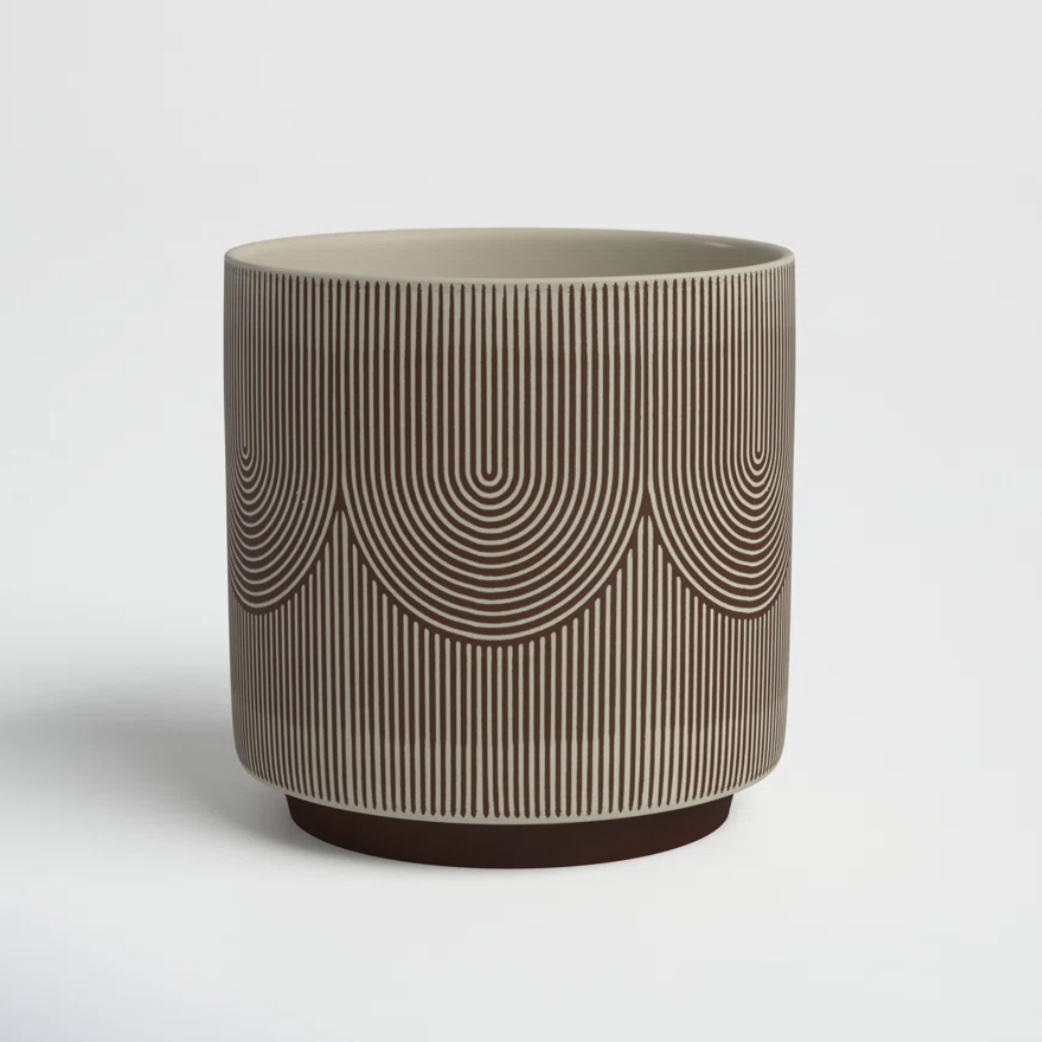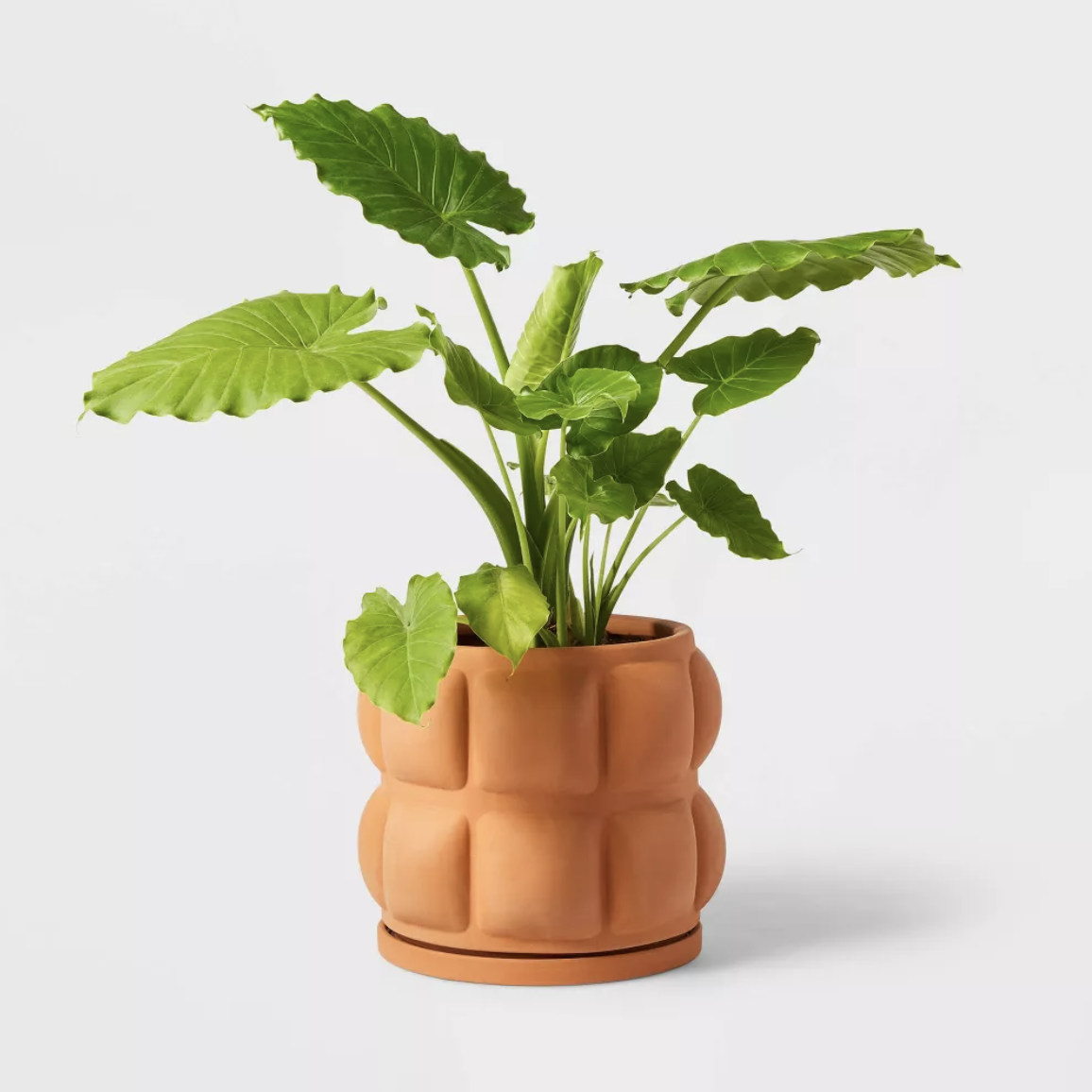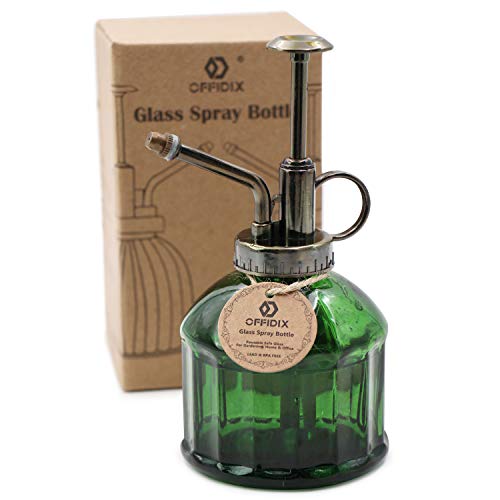7 plants to make a bathroom smell nice – for a relaxing mood
Harness the power of humidity-loving plants to give your bathroom a natural fragrance, and make daily routines that little more chilled

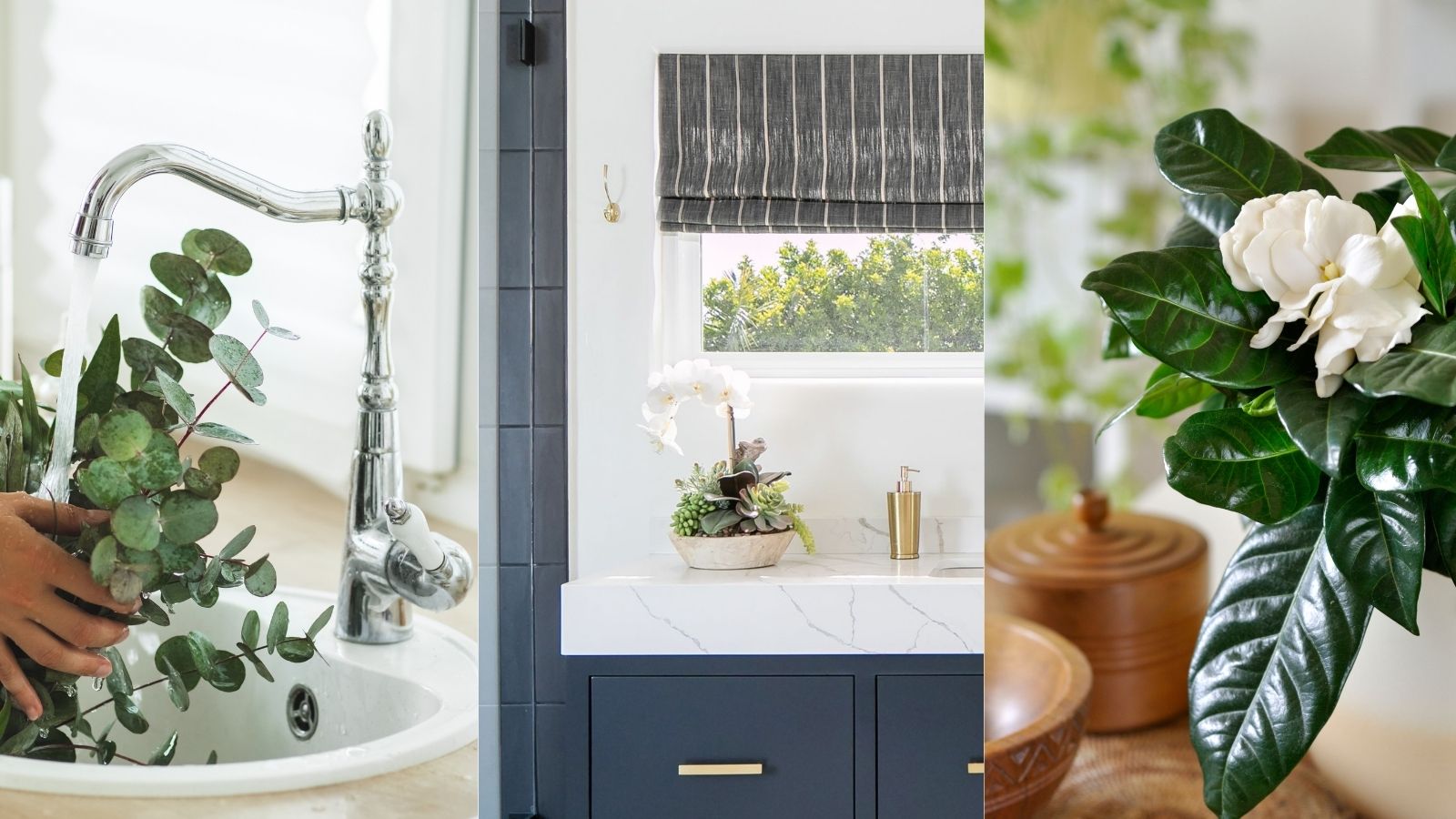
The bathroom is a place of quiet – it's where we go to wash off the day and, hopefully, unwind. And with the help of some leafy, fragrant plants that make a house smell good, we can transform our bathroom into a more relaxing space. One that we want to linger in for longer.
Tropical plants will do best in a bathroom's humid conditions, so when shopping for the best bathroom plants, look for the kind that you might find in a jungle. As well as making your bathroom feel more homely and welcoming, some of these indoor plants have flowers that will emit a gentle aroma when in bloom.
Fragrance can very often help us to relax better, so we have gathered seven of the best bathroom plants that can help do the job for us.
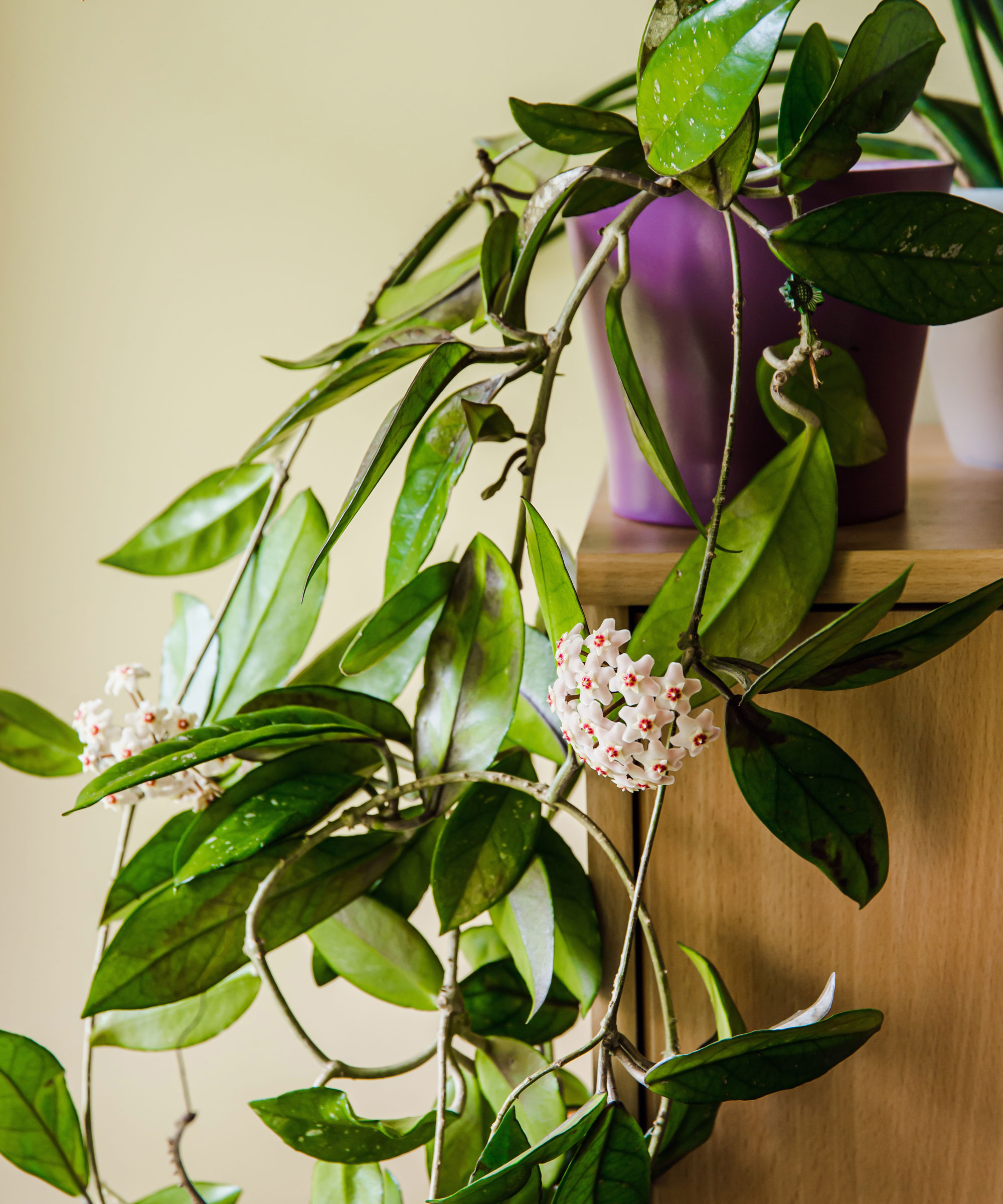
7 fragrant houseplants that are perfect for a bathroom
Be careful not to overwater any plants in the bathroom, as there is often less air movement and light than in other rooms of the home, and this means plants will transpire less.
1. Peace Lily
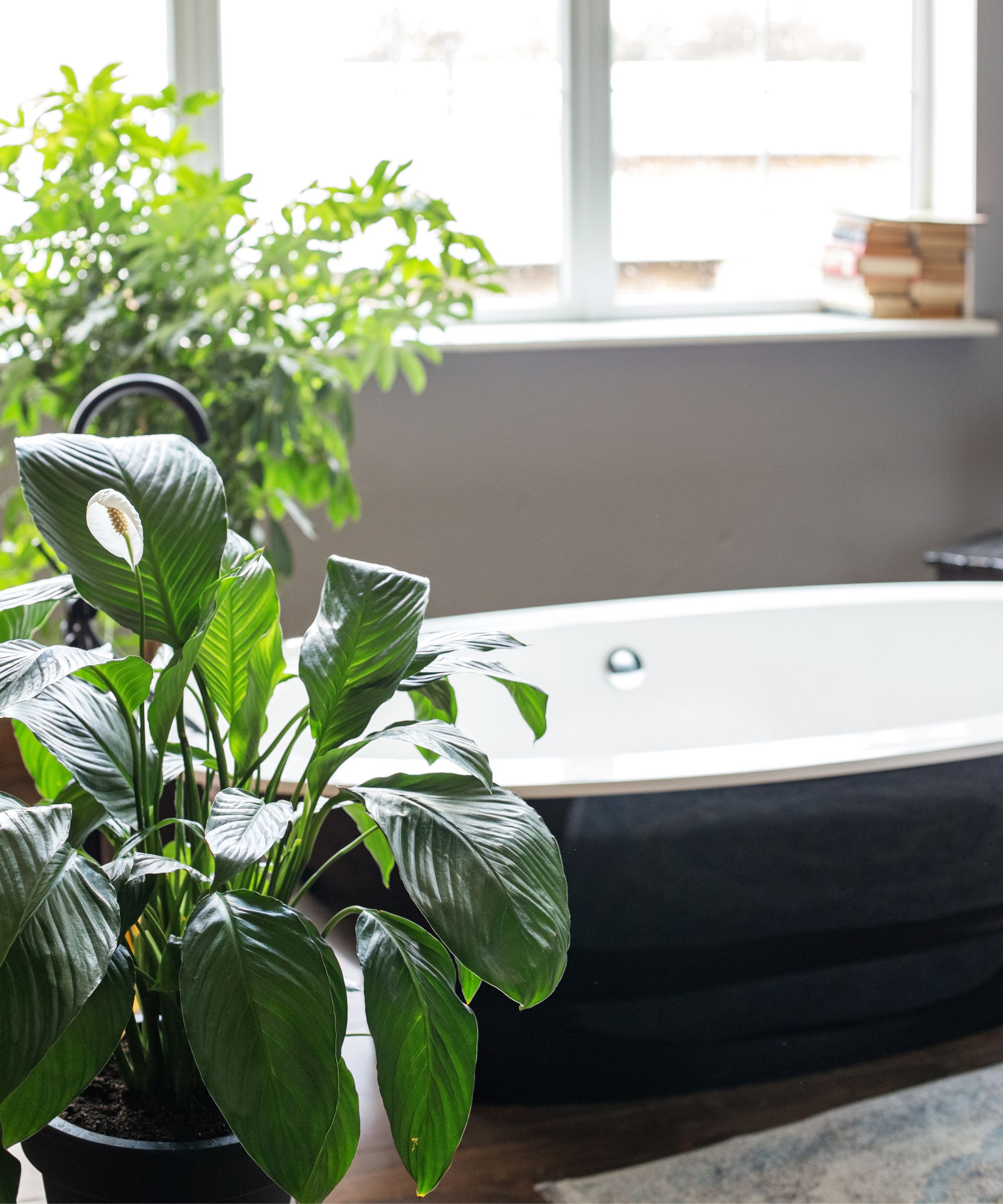
With its glossy leaves and pretty white flowers, this classic houseplant is known for cleaning the air, so it's a good option to help keep your bathroom fresh. From my experience, they have a remarkable ability to bounce back after being left unwatered, too
Peace lilies are a very easy indoor plant to grow, and they are perfect for a bathroom, emitting a subtle clove-like scent when in flower. They thrive in the high humidity and low light.
Peace lilies are also known to be one of the best air cleaning plants, as not only are they efficient at purifying the air but they can also help remove mold spores – handy in bathrooms where condensation and mold can be an issue in the colder months.
Design expertise in your inbox – from inspiring decorating ideas and beautiful celebrity homes to practical gardening advice and shopping round-ups.
2. Lemon button fern
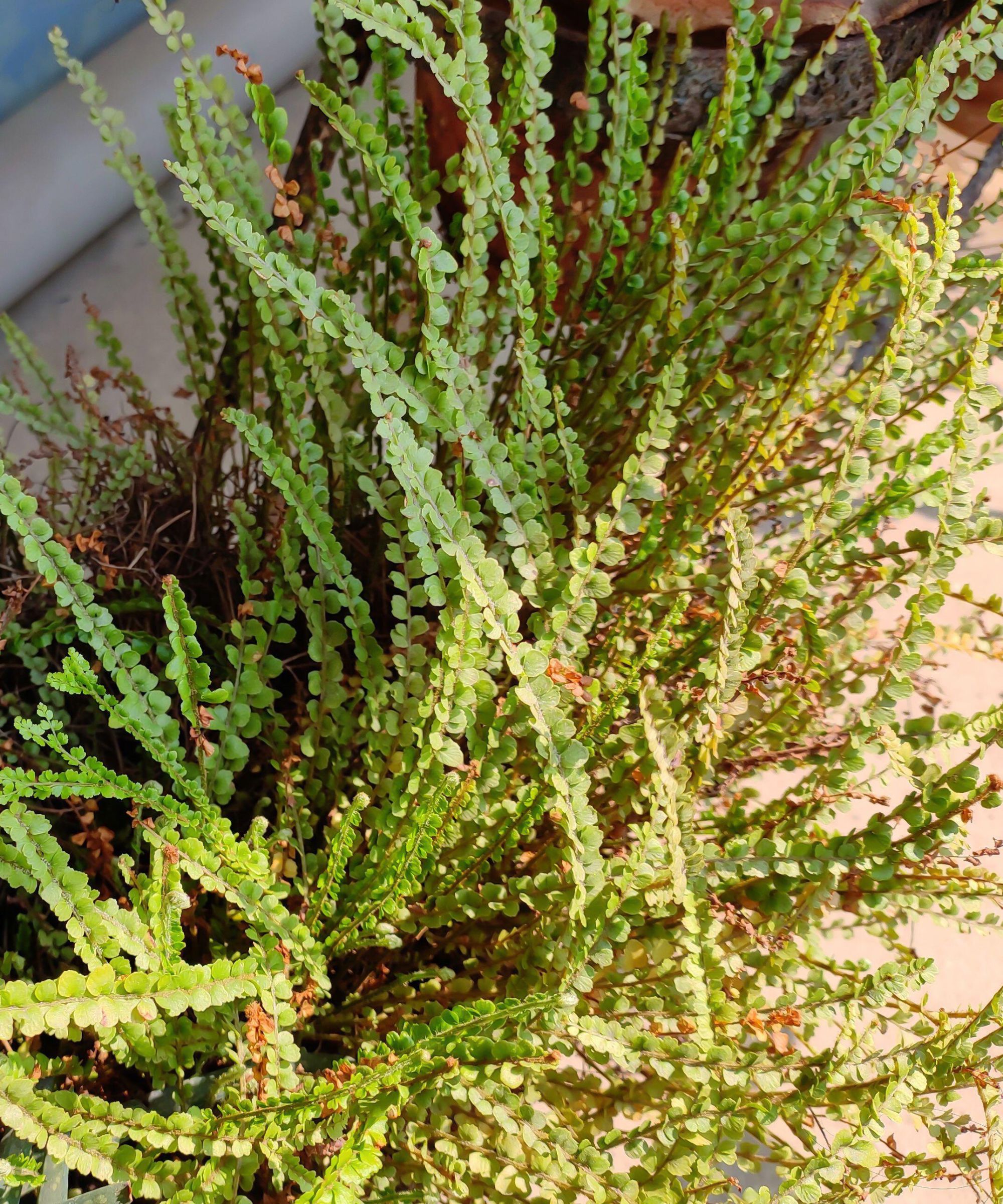
Ferns are great in the bathroom and bring lots of dramatic, leafy texture. Homes & Gardens' head of gardens, Rachel Bull, is particularly fond of her lemon button fern, which she keeps on her bathroom windowsill.
'It gives off a deliciously sweet, lemon scent when I gently brush or rub the leaves, which I will often do as part of my morning routine,' says Rachel. 'It can be a little tricky to care for, as with similar types of ferns. I have to be careful that it doesn't sit in direct sunlight as its leaves will crisp up and go brown, so I do sometimes move it around the bathroom if I know it's going to be a hot day.'
Rachel says lemon button fern also needs watering most days, especially in the warmer months of the year, so recommends keeping a close eye on it and touching the soil regularly to make sure it is sufficiently hydrated.

Rachel is head of gardens at Homes & Gardens, with an editorial career that began 15 years ago on Country Living magazine. Rachel grows an abundance of vegetables and cut flowers on her rambling Yorkshire plot, while renovating her Edwardian home. She is particularly interested in sustainable gardening methods and growing flowers and herbs for well-being.
3. Orchid
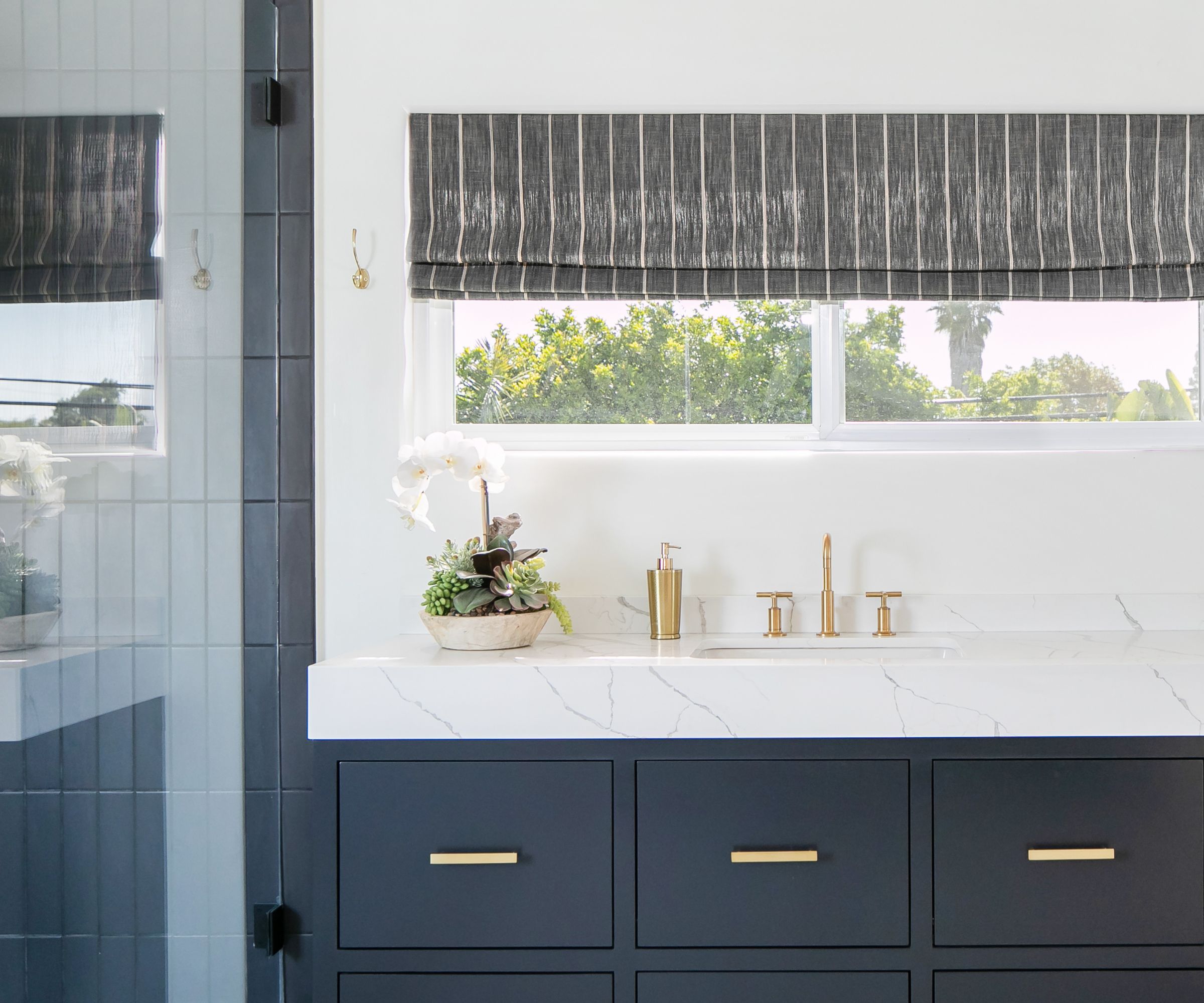
An orchid resting by the sink or on a windowsill is one of our favorite ways to make a bathroom look more luxurious, and plant expert Anna Waterfield from Plant Pet Club says orchids are a good option to keep your bathroom smelling fresh.
'There are not many traditional houseplants that can cover up the smell of the bathroom – but they are able to remove excess moisture from the air, which causes damp smells and mold,' says Anna.
'I would recommend concentrating on plants like orchids, various ferns, and calatheas for darker bathrooms with north and east/west facing windows. The moisture in the bathroom will make the foliage of those plants even more luscious,' she shares.
For tips on caring for orchids indoors, you can head to our guide.
4. Jasmine
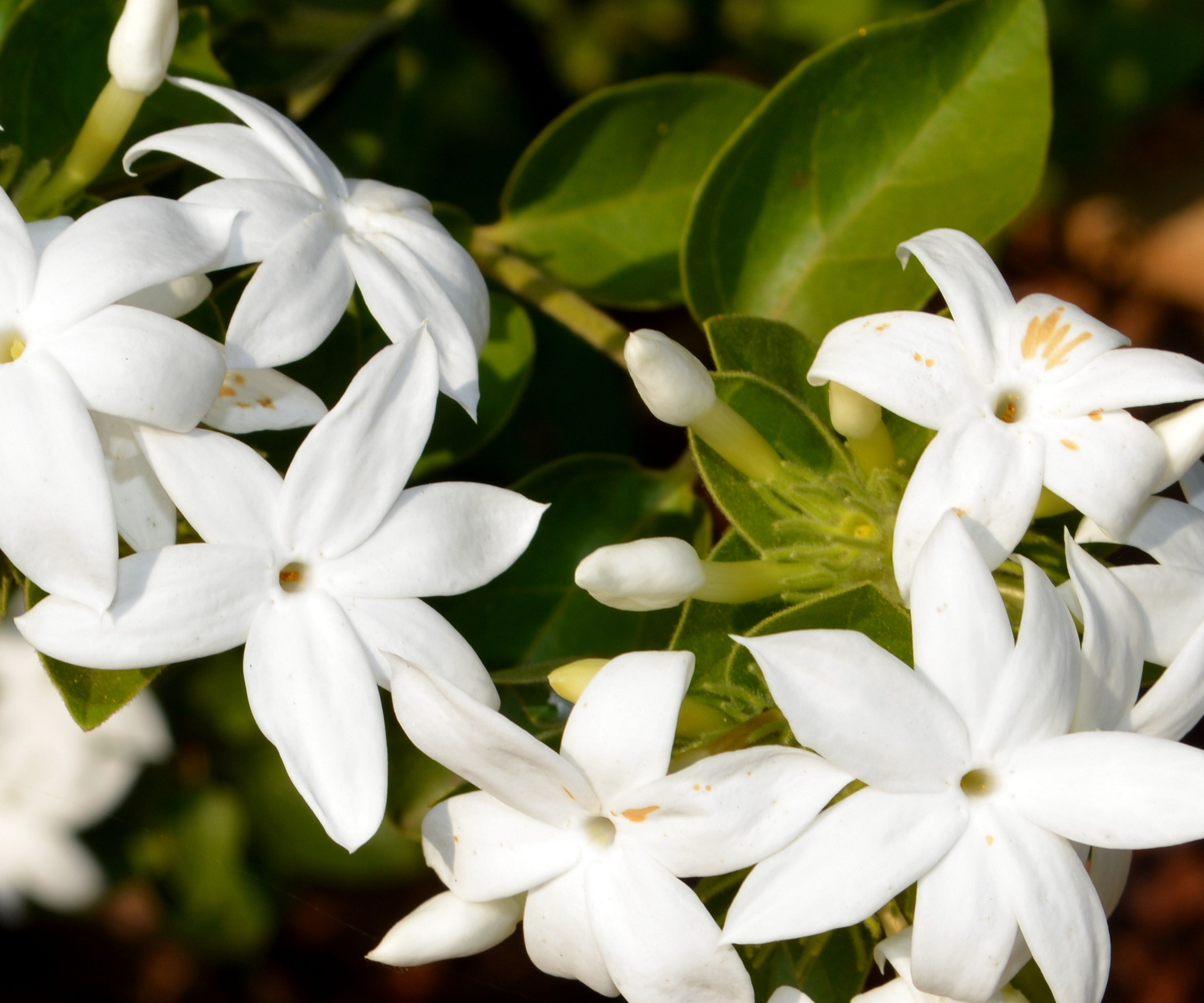
Jasmine is well known for its sweet and fruity aroma when in flower. As long as your bathroom receives enough light, it is possible grow jasmine in pots indoors and enjoy the heady scent while taking your morning shower.
Certain types of jasmine plants may perform well in your bathroom if it gets enough light from a bright window. They are one of the few indoor plants that require much more light than others to thrive.
There are lots of ways to increase the natural light in your bathroom, such as removing any clutter on windowsills and adding more reflective surfaces. If conditions in your bathroom can provide good light for jasmine, for example, if you have a large window or skylight, they may provide bountiful flowers, which will provide an amazing fragrance.
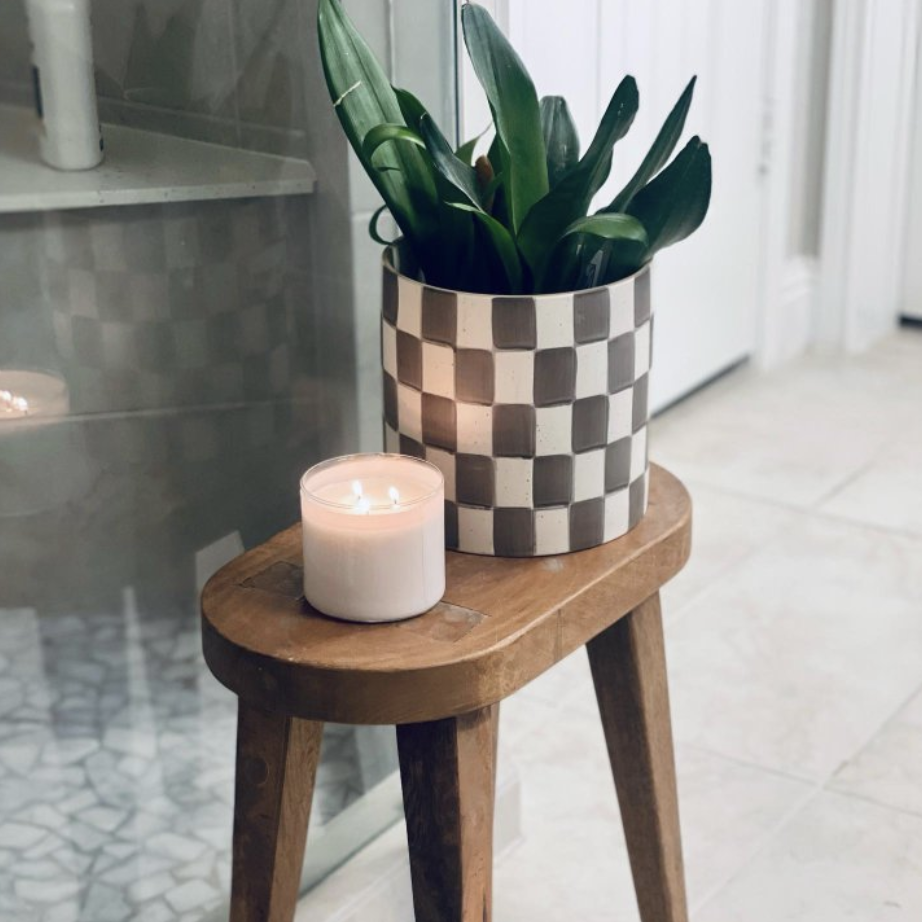
$20 at Target | This round stoneware planter has a checkered pattern for a playful, contemporary look. Designed with a single drainage hole, this decorative planter pot is perfect for housing your green foliage. Place it on a plant stand, table or on the ground for a welcoming display.
5. Hoya
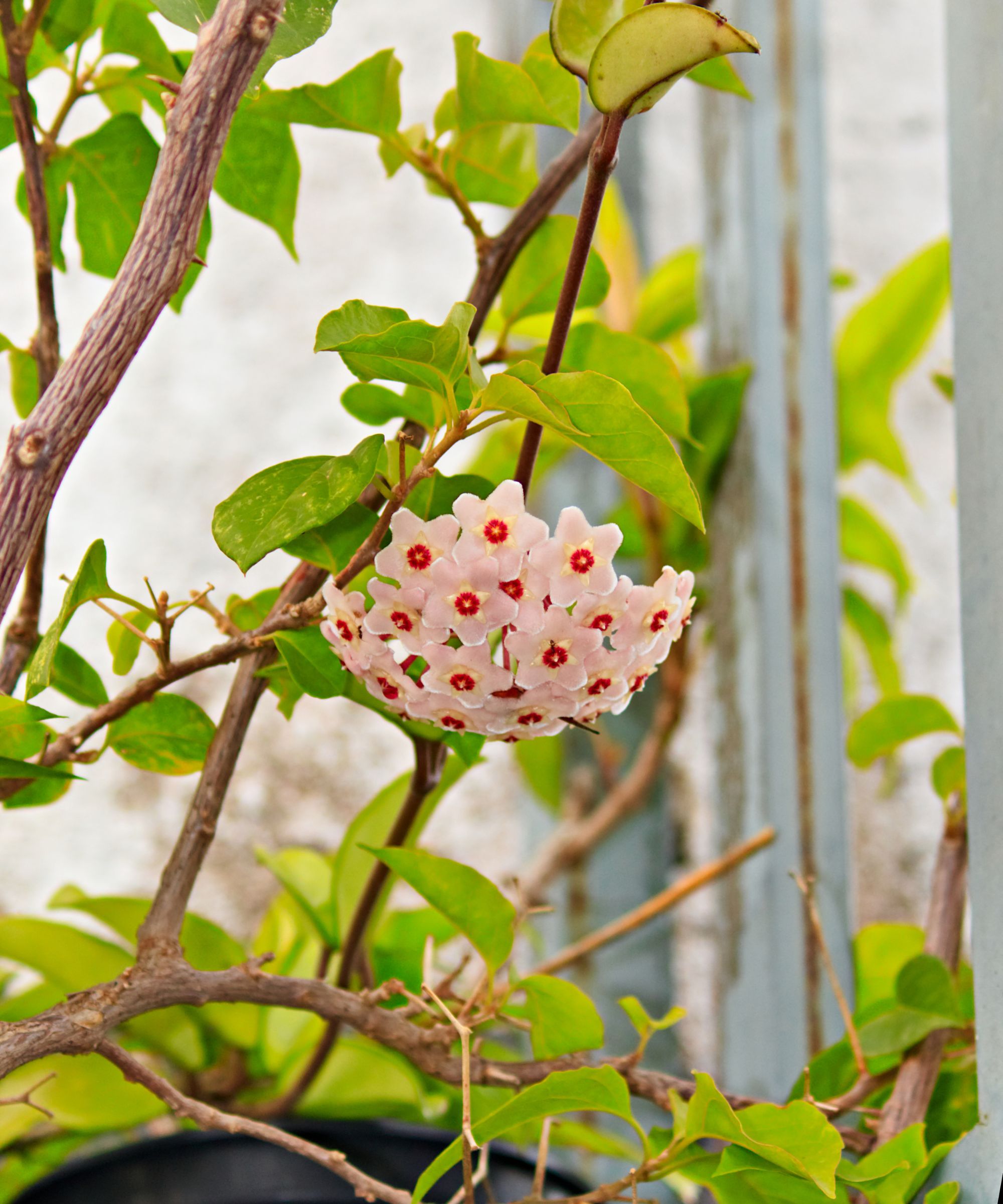
'Sure, orchids and jasmine are popular, but there are more options,' says Zeba Parkar, the founder and CEO of Treleaf, a plant accessories store. 'Hoyas, with their heavenly-scented blooms, thrive in bathroom humidity. Stephanotis floribunda offers a stronger jasmine fragrance and loves humidity too.'
As a plant enthusiast with over 100 houseplants, Zeba understands bathroom plant challenges. She says it's important to match light needs (Hoyas like bright, indirect light), and to consider extra misting for some plants. You can pick up a stylish plant mister at Amazon to help you keep humidity-loving plants happy.

Zeba Parkar is the founder of Treleaf trellises. Zeba loves all sorts of plants, and first made nature-inspired trellises for her personal houseplant collection. With the support and encouragement of the plant community, Zeba started selling them online, and got a warm response. She takes pride in bringing unique designs, sturdy materials and great finishes to her work.
6. Gardenia
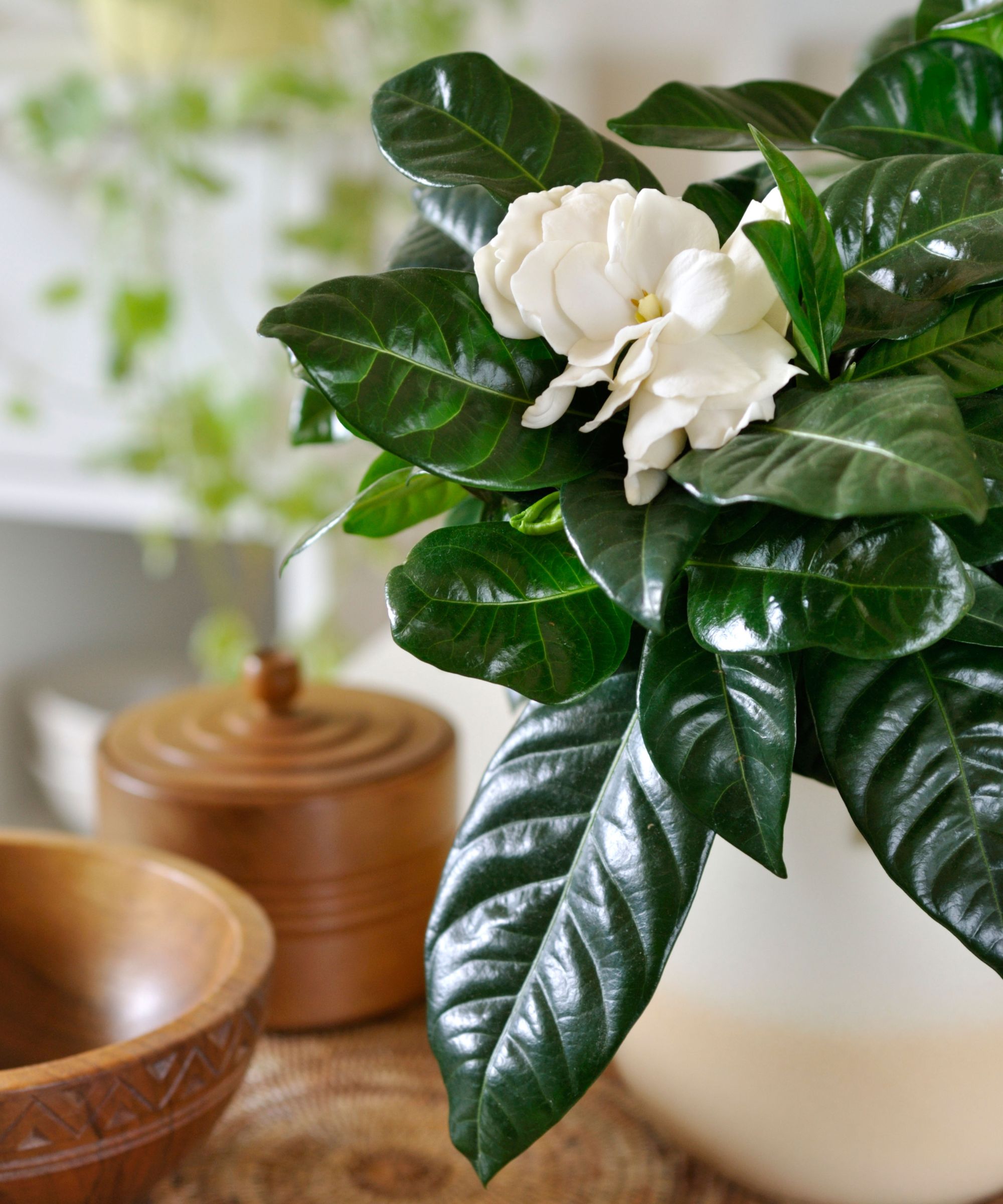
Gardenias are very pretty, tropical plants that have a beautiful white flower, which gives off a lovely sweet scent. Speaking as someone who has tried and failed to look after a gardenia, it's worth being aware that they are among the hardest houseplants to keep alive, (though you can read expert tips in our guide on caring for gardenias indoors).
Plants are living things and will express what they need, so if you see your gardenia's branches reaching toward the window, rotate it so the other side gets some sun. A good rule of thumb with houseplant care is to research the conditions that the plant is found in naturally, and try to replicate them at home, as there is a big difference between a plant that is thriving and one that's simply surviving.
The conditions of the standard bathroom are ideal for a gardenia, so if you're up for the challenge, they are a hugely rewarding option. Given them bright, indirect light, humid conditions, and a lot of tender loving care.
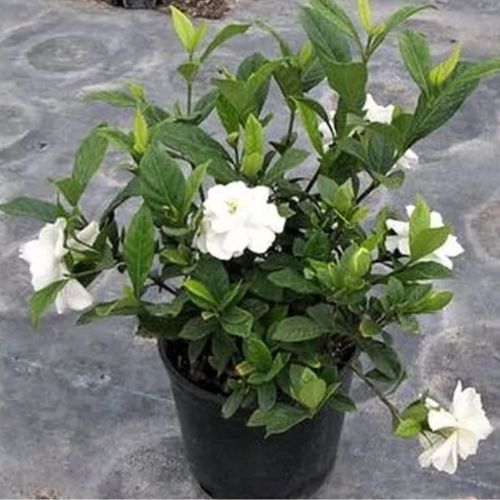
Gardenia has one of the most powerful and memorable floral scents of all, and August Beauty Gardenia (Gardenia jasminoides 'August Beauty') brings that heady floral scent to your home. Its fragrance recalls starlit summer evenings and luxurious French perfume, and its glossy dark green leaves look lovely year-round.
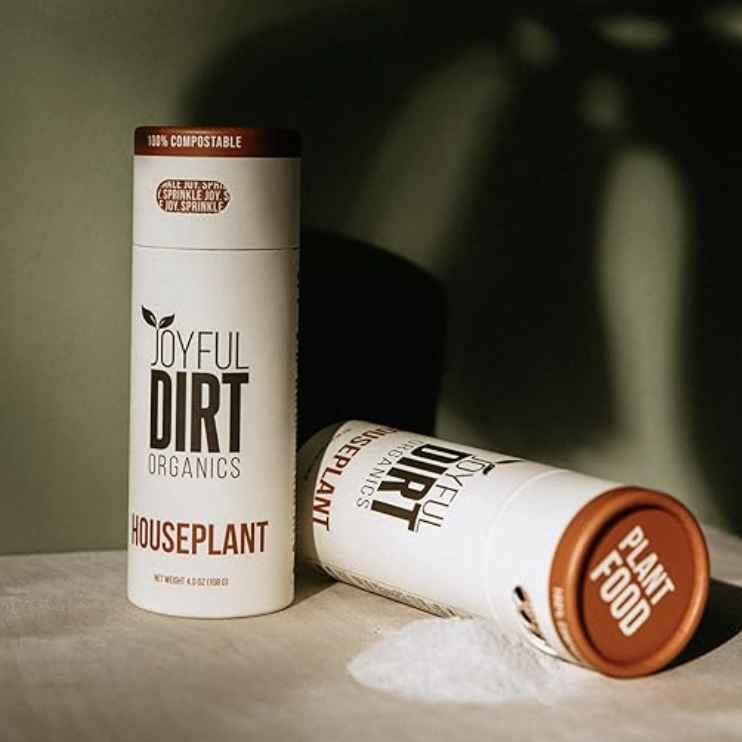
Keep plants looking their best by feeding them around once a month – shake some of the Joyful Dirt plant food onto soil on each side of the plant and water in, or mix directly in your watering can. It can also be used to help unhappy plants, just use it each time you water them to help bring them back to life.
7. Cut eucalyptus
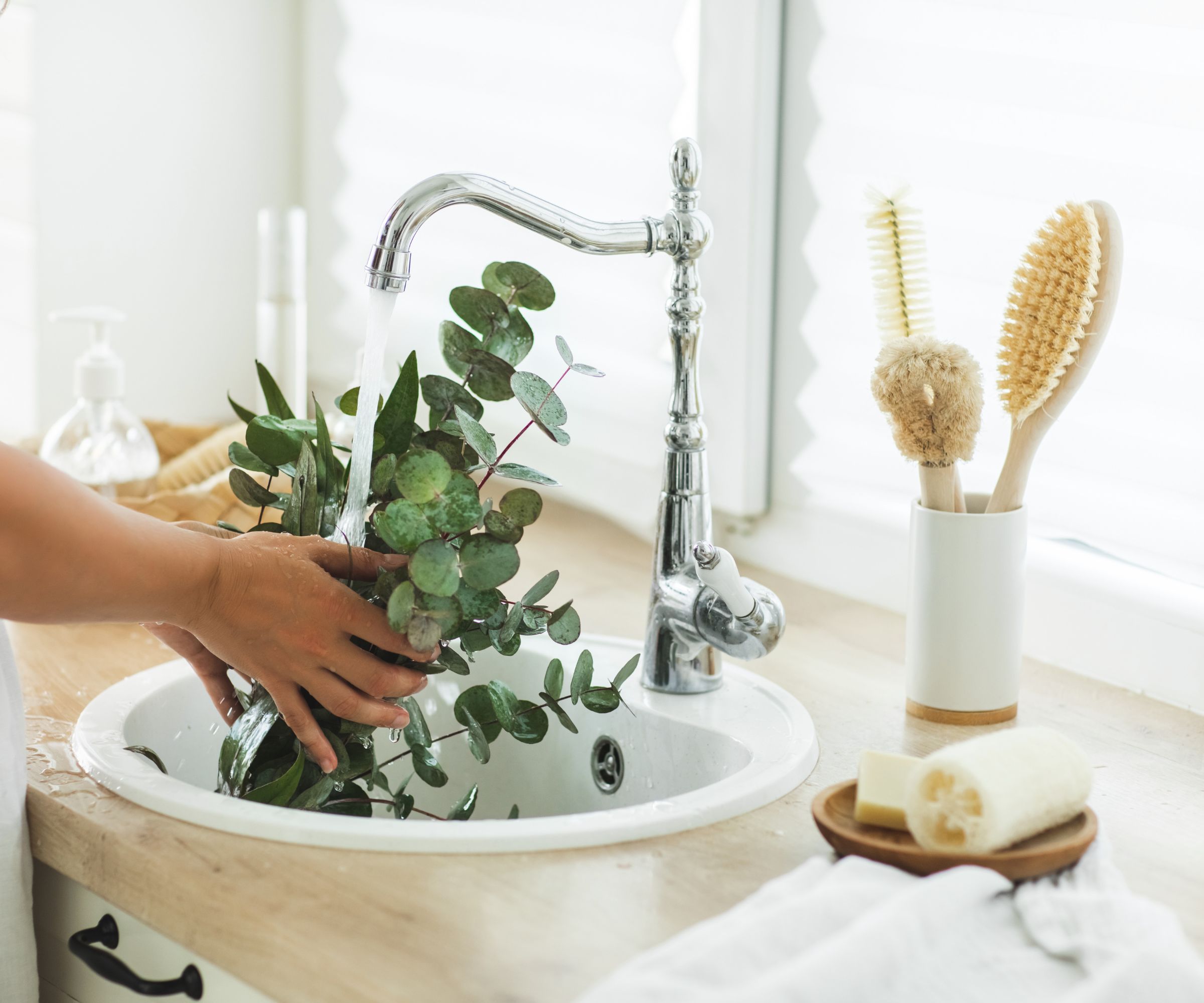
Not only does it have dramatic curved branches and beautiful spherical leaves, cut eucalyptus is a great indoor plant to infuse subtle scent in your home. You can make your bathroom feel like a spa with cut eucalyptus stems, which releases essential oils when placed in a steamy bathroom.
Eucalyptus can help with nasal congestion and the almost medicinal scent is relaxing and uplifting. You can also use cut eucalyptus in the shower by tying it to the shower head, or simply display a large bunch in a vase.
Bear in mind that eucalyptus is toxic if consumed, so be careful if you have four-legged friends or small children around.
FAQs
Which plants will not survive in the bathroom?
Cacti and succulents do not do well in high-humidity environments and therefore would not be happy in a bathroom. Plants that are prone to fungal diseases and pests may not grow happily in bathrooms and would be best kept near an open window in another part of your home.
Air plants are also a brilliant option for keeping on top of damp smells. These easy-going plants will be even more hassle free when placed in the bathroom, as they will take their moisture from air, reducing their demand for watering.
Plants can only do so much, so you might like to try out some other fun ways to make your bathroom smell nice, too.

Millie is a freelance writer and qualified interior designer based in Sheffield. She has many years of experience in the world of content and marketing, and previously worked as the head of Solved at Homes & Gardens. Before that, she worked in SEO at News UK in London and New York. She has a first-class degree in French and Italian from UCL and loves to weave decor into her home that reminds her of time spent living and studying in Bologna. Millie believes a clutter-free space that you love coming home every day is the best secret weapon for our well-being.
